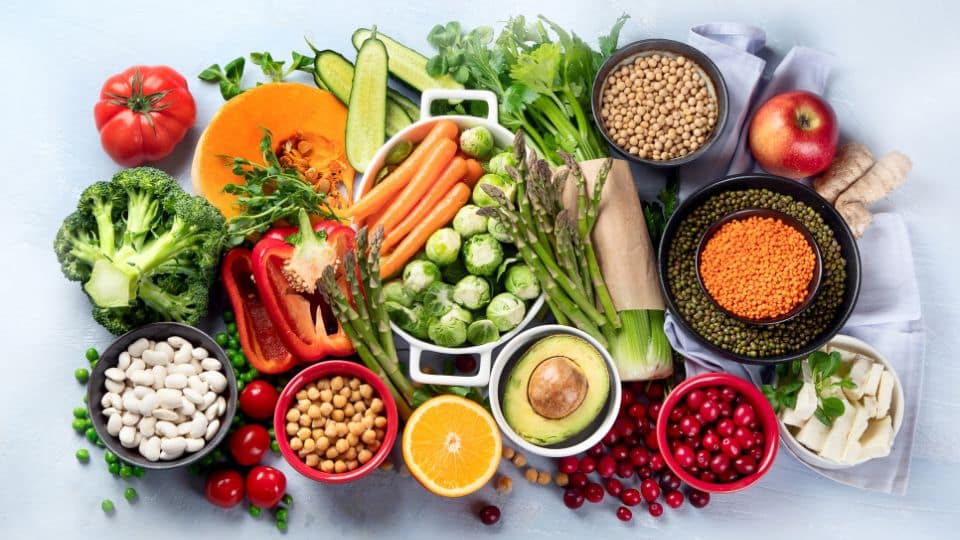Vegan Diet and Your Heart Health: Hey everyone, welcome back! Today, we’ve got some fascinating news that might just change the way you think about your diet. A recent study conducted by researchers at Stanford Medicine has some groundbreaking findings on how a vegan diet can impact our cardiovascular health. So, grab a snack, and let’s dive into the details!
Now, you might be wondering why this study is so special. Well, researchers took a unique approach by studying identical twins. Yep, those siblings who not only look alike but share the same genes and grew up in similar environments. This helped them isolate the effects of diet changes, minimizing the impact of genetics and lifestyle differences.
So, they took 22 pairs of these identical twins, and for eight weeks, one twin went on a healthy vegan diet while the other stuck to a healthy omnivorous diet. Both diets were pretty healthy. The vegan diet, of course, excluded all animal products like meat, eggs, and dairy.
For the first four weeks, a meal service delivered 21 meals a week that were specially crafted and tailored to each diet. Then, for the next four weeks, the participants prepared their own meals. A dietitian was on standby to offer advice, making sure everyone stayed on the right track.
Now, let’s get to the good stuff – the results! Drumroll, please. The participants on the vegan diet showed significant improvements in their cardiovascular health markers, especially in the first four weeks. We’re talking about lower levels of bad cholesterol (LDL-C), decreased insulin, and some weight loss.
The researchers measured LDL-C levels – that’s the cholesterol we want to keep low. At the start, vegans were at 110.7 mg/dL, while omnivores were at 118.5 mg/dL. Fast forward eight weeks and the vegan diet group dropped to 95.5 mg/dL, while the omnivores only went down to 116.1 mg/dL. Aim for less than 100, and the vegans got there!
Here’s the kicker – the most significant changes happened in the first month. The vegan participants not only had healthier cholesterol levels but also saw about a 20% drop in their fasting insulin. And, bonus, they shed an average of 4.2 more pounds compared to their omnivore counterparts.
Now, you might be thinking, “What does this mean for me?” Well, according to the lead researcher, even if going full vegan isn’t your thing, incorporating more veggies, fruits, whole grains, nuts, and seeds into your diet is a step in the right direction. And hey, it’s not just about the heart – a vegan diet can bring other benefits like increased gut bacteria and reduced telomere loss, slowing down the aging process.
You can also view this article: The Perfect Exercise Combo for Heart Health: Half-Cardio, Half-Strength Training!
Imagine enjoying Indian masala, Asian stir-fry, or African lentil-based dishes – tasty, diverse, and plant-based. The lead researcher, who’s himself been “mostly vegan” for 40 years, assures that making this shift can be a great first step towards a healthier lifestyle.
So, what’s the takeaway here? According to the lead researcher, most of us could benefit from a more plant-based diet. It’s not about strict rules; it’s making choices that support our long-term health. And if these identical twins can do it in two months, maybe it’s worth giving it a shot.
And there you have it, folks! The study, published in JAMA Network Open, brings us one step closer to understanding the incredible impact our food choices can have on our health.
Thanks for joining us today, and until next time, stay healthy and stay curious!
Glossary:
- Cardiovascular Health: Refers to the health of the heart and blood vessels.
- Stanford Medicine: Refers to the medical school and affiliated hospitals at Stanford University, known for its research and medical education.
- Twin Study: A research method that involves studying identical twins to isolate genetic influences from environmental factors.
- Cholesterol Levels: The amount of cholesterol present in the blood, including low-density lipoprotein cholesterol (LDL-C or “bad cholesterol”).
- Insulin Levels: The amount of insulin, a hormone that regulates blood sugar, in the bloodstream.
- Healthy Vegan Diet: A nutrition plan that excludes animal products, including meat, eggs, and dairy, and focuses on plant-based foods.
- Healthy Omnivorous Diet: A balanced diet that includes a variety of foods, both from plant and animal sources.
- LDL-C (Low-Density Lipoprotein Cholesterol): Often referred to as “bad cholesterol,” higher levels are associated with an increased risk of heart disease.
- Gut Bacteria: Microorganisms in the digestive tract that play a role in digestion and overall health.
- Telomere Loss: Reduction in the length of telomeres, which are protective caps on the ends of chromosomes associated with aging.
- JAMA Network Open: A peer-reviewed medical journal where the study was published.
Journal Reference:
Matthew J. Landry, Catherine P. Ward, Kristen M. Cunanan, Lindsay R. Durand, Dalia Perelman, Jennifer L. Robinson, Tayler Hennings, Linda Koh, Christopher Dant, Amanda Zeitlin, Emily R. Ebel, Erica D. Sonnenburg, Justin L. Sonnenburg, Christopher D. Gardner. Cardiometabolic Effects of Omnivorous vs Vegan Diets in Identical Twins. JAMA Network Open, 2023; 6 (11): e2344457. doi:10.1001/jamanetworkopen.2023.44457
